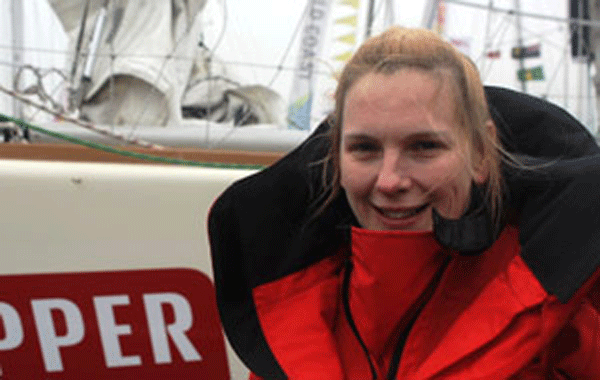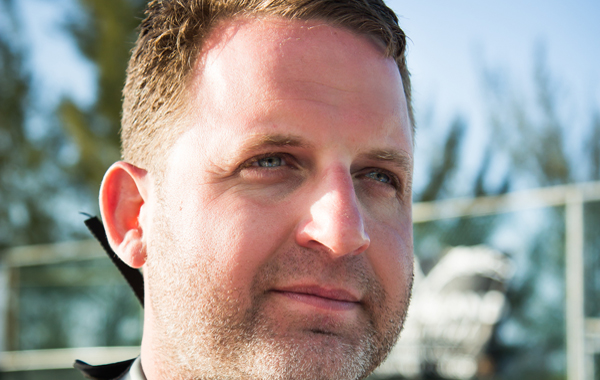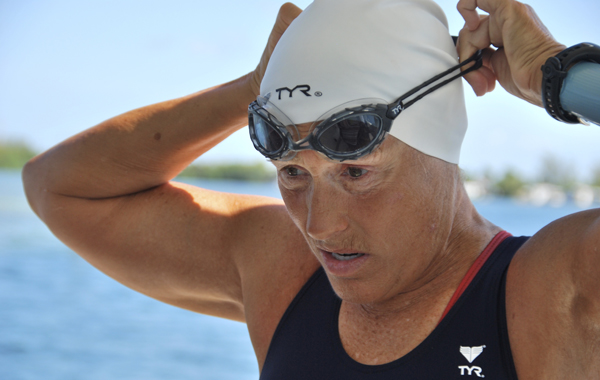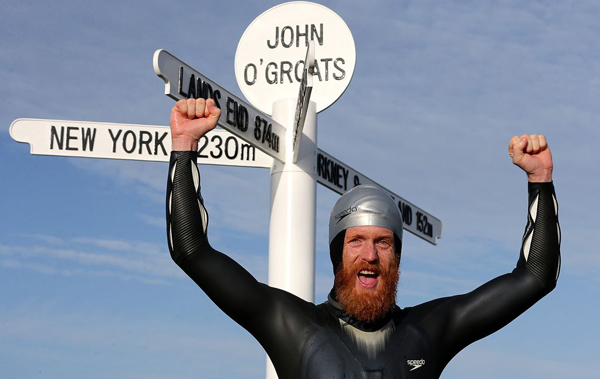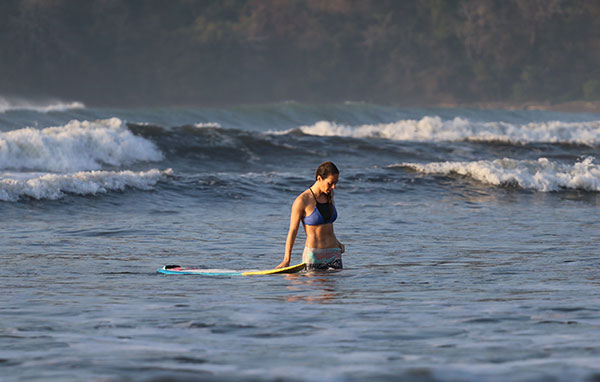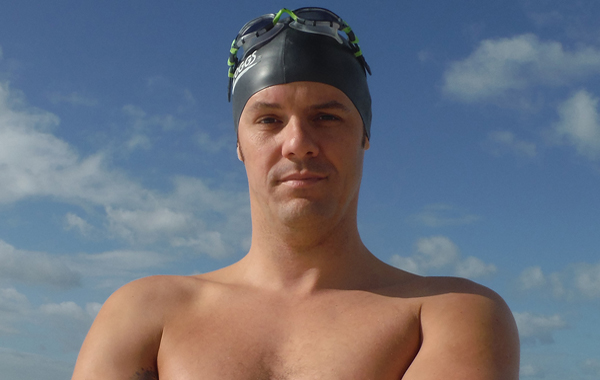
AFTER SEVERAL successes in swimming as a child Adam Walker gave up on the sport in his late teens. It wasn’t until he watched an in-flight movie in 2006 that he was inspired to swim the English Channel which would lead him to eventually attempt and complete swims across the world’s seven oceans.
In this exclusive interview we talk to Adam about his incredible lifestyle change, some of the obstacles he has had to overcome along the way and his work as a coach and motivational speaker.
To find out more about Adam and how you can sign up to his swimming school visit www.oceanwalker.co.uk and to find out more about his personal story go to www.adamwalkeroceans7.co.uk.
When were you first introduced to swimming and were there any strong influences in your early progression in the sport?
I joined Bingham Swimming Club in Nottingham when I was seven years old. However, as a kid I played lots of sports: cricket, rugby and liked running, so swimming wasn’t 100 per cent the priority.
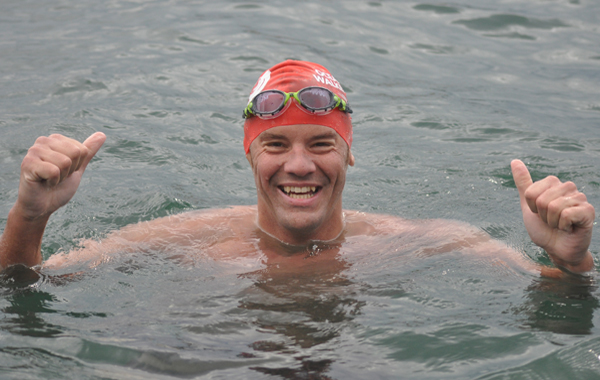
Could you tell us about some of the successes you had when you were swimming at this time and what kind of training you were doing?
Fifty metres backstroke was my event. I didn’t like doing 100 metres and I never did front crawl unless it was one length in a relay.
At 16 years old I reached the Nottinghamshire county final. Unfortunately, for me I had my first knee injury just before the championships when it was dislocated in cricket, it meant I couldn’t do a proper underwater kick for the start and turn. It was never the same after that and affected each race.
I did very little between the ages of 16 to 19 in swimming, focusing on cricket primarily. I played county cricket for my age group for various years up to under 19.
I had quite a lay-off and entered the university nationals after very little training and reached the final. It was then I realised how much more I could have done in swimming if I focused on it when I was younger and had not been injured. That year I qualified for the Staffordshire 50 metre final in the same event. After that I gave up swimming and played water polo in goal while also continuing the cricket.
In 2006 you were suddenly inspired to swim the English Channel. Where did this inspiration come from and how did you set about preparing for the challenge?
In 2006, eight years later, I played my last cricket match due to the knee problems, having two operations and two dislocations.
I watched an in-flight fiction movie on an aeroplane shortly after about a man swimming the Channel. I became so inspired and felt I had something to prove in swimming, so I set out to see if I could swim the Channel.
I jumped into a local pool and swam for one-hour to test my capability. It was a pretty awful hour but I did it again the next day and built up from there. After 6 months I could do five hours non-stop in the pool.
I then had to test myself in open water which went very badly as I developed hypothermia in nine degrees water temperature and nearly died.
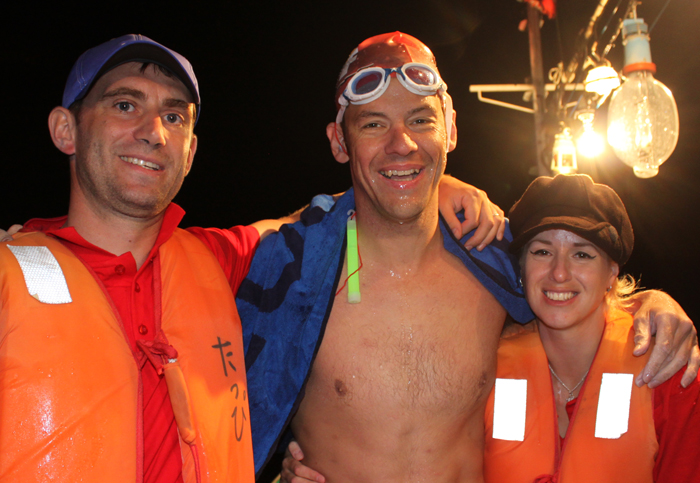
Could you tell us about that swim in 2008 and what it was like to complete it?
When I completed the swim, it was like nothing else. The sense of achievement and all those hours training paying off, it felt amazing! It wasn’t easy. I had 18 knot winds and was sick around 20 times but I trained myself mentally to take whatever was thrown at me. I also found out that I had been carrying an injury, my shoulder tendon had partially ruptured before the swim.
It wasn’t long before you set yourself the challenge of swimming the Gibraltar Straits and at the time you achieved this you became the first British person to swim a two-way Gibraltar Strait crossing. What was this swim like compared to that of the English Channel?
I had to wait until 2011 to complete the Gibraltar Straits, as I had two operations on my shoulder to reattach it. I was advised not to swim again by a surgeon and not wanting to give up I developed a new swim stroke to try to do one more swimming. This stroke became affectionately known as the ‘Ocean Walker’ technique – it is designed to power from the core taking all the pressure off the shoulders and chest. You can learn more about it at www.oceanwalkeruk.com
I broke the British record one way and then swam back. My new stroke meant that I could swim with less effort with more speed. I had to sprint across the Channel for the last three and a half hours to finish and became the first British person to complete a two-way and the sixth person to do it in the world. The two-way was tougher than the English Channel but I had more experience and confidence on this swim.
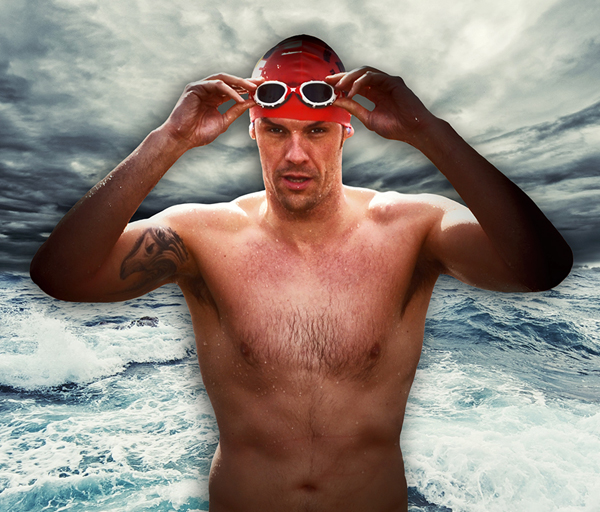
You then decided to swim the seven channels of all seven oceans – the ‘Seven Oceans Challenge’. You completed this in seven years despite injuries from your English Channel swim which were so severe doctors had advised you not to swim at all. How did you motivate yourself and succeed with such strong odds against you?
I took on five more channels including a 21-mile two-way Windermere which I won in 2010. I prayed to the ocean Gods on each swim that my shoulder would get through each challenge. As I completed each swim it was my technique that saw me through and even against the odds I believed if I had a strong mind I could do it. I started to believe it was my destiny to complete the Oceans Seven and no injury would stop that!
What are some of your toughest and craziest memories from the Seven Oceans Challenge?
I had lots of challenges on these swims from being saved by dolphins from a shark, (the video went viral), to being stung by a man o war in Hawaii, losing feeling in my spine after 13 and a half hours and having three and a half hours of agony to complete a 17-hour swim. In this swim I covered a further 11 miles on top of the 26 to complete it and was lucky to be alive.

Could you tell us about Ocean Walker and the message and work ethic you try to instil in swimmers who come to you for help?
Ocean Walker represents ‘never give up on your dreams’. My aim is to create a front crawl swim stroke which makes it not only easier and more efficient to swim through water but quicker and injury free, just like it did for me. I aim to motivate and give people the belief that no matter what your age, fitness, fears and barriers you can conquer anything – even against the odds!
What can readers expect from your forthcoming book and when will it hit the shelves?
My book is an account of a normal guy who didn’t want to accept what should have been and use injuries and obstacles as barriers.
Although my journey is a swimming one, each challenge created a different obstacle, very similar to everyday life, which people will be able to relate to.
I hope the book inspires readers to step out of their comfort zone and see what they are capable of. It is due to be published around February next year.


